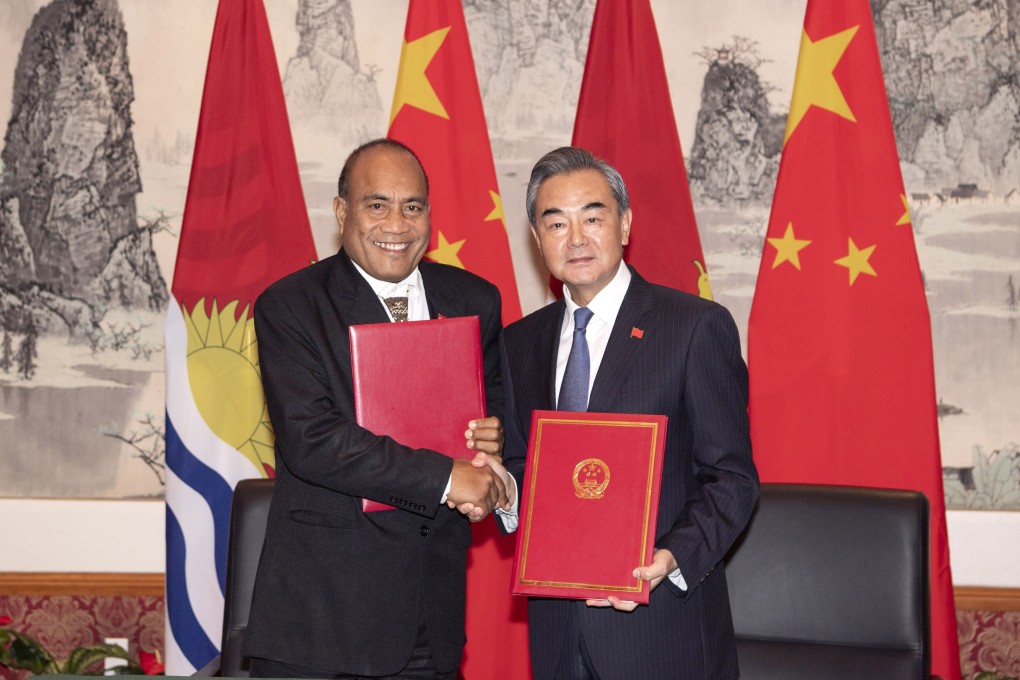Advertisement
Beijing, Kiribati formalise their diplomatic relationship
- China’s Foreign Minister Wang Yi and Kiribati’s President Taneti Mamau put their names to a joint communique on sidelines of UN climate summit
- Tiny Pacific nation is second this month to sever ties with Taiwan in preference for Beijing
Reading Time:2 minutes
Why you can trust SCMP

Beijing and Kiribati have established diplomatic relations, Chinese state media reported on Saturday, days after the tiny Pacific island nation severed its links with Taiwan.
Chinese Foreign Minister Wang Yi and Kiribati’s President Taneti Mamau on Friday signed a joint communique to establish formal ties on the sidelines of the United Nations climate summit, Xinhua said.
The move is a coup for Beijing just days before it marks the 70th anniversary of the founding of the People’s Republic of China, and comes a week after the Solomon Islands also dropped diplomatic ties with Taipei.
Advertisement
And it leaves the self-ruled island more isolated than ever with just 15 states left that recognise it.
Taiwan has been a de facto sovereign nation since the end of a civil war in 1949, but Beijing still views it as its territory and has vowed to seize it, by force if necessary.
Over the decades, as China’s economic and military power has grown, most countries, including the United States and most Western nations, have switched recognition to Beijing.
Advertisement
Advertisement
Select Voice
Choose your listening speed
Get through articles 2x faster
1.25x
250 WPM
Slow
Average
Fast
1.25x